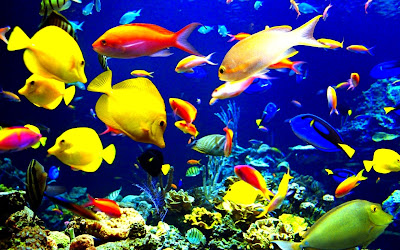CC Is Undermining 90% of Marine Species - New Study
Startling Impact of Climate Change on Marine Life
Source: Stock Images
Devastating Impact of Greenhouse Gas Emissions on Global Maritime Environment
The fate of nearly all marine species - up to 90% - could be at a high or critical risk of extinction by the end of the century unless the rate of greenhouse gas emissions is reduced. If greenhouse gas emissions remain unchanged, the impact on marine life, marine ecosystems and the global environment will be catastrophic. The startling threat that Climate Change is now having on 25,000 marine species has just been documented in a new scientific study and published in the publication "Nature Climate Change". Bottomline: if the world continues with "business as usual" with greenhouse gas emissions, 90% of all marine species will be at high to critical risk of extinction by 2100. That would undoubtedly have a cascading, destructive impact on the overall global environment. These findings are being called very startling, sobering and also a major call for action.
Comprehensive New Global Research
The species in the research study include animals, plants, protozoans and much more. The vast majority are not expected to survive in 85% of their global ocean and other watery distribution locations. The study found that the most vulnerable animals include Mako sharks, rays and mammals. Waters along lower income areas where fishing is a major food source and industry are the most impacted. The fundamental problem is caused by Climate Change destroying the marine ecosystem with rising temperatures and carbon dioxide emissions, which in turn are devastating marine biodiversity. The study finds that global adherence to the 2C global warming limit in the Paris Agreement would significantly reduce the risk to virtually all marine species and ecosystems. Unfortunately, we don't have that level of adherence to the Paris Agreement at this moment. The lead author on the new scientific study is ecologist Daniel Boyce of the Bedford Institute of Oceanography in Nova Scotia.






%20(1)%20(1)%20(3)%20(2)%20(2).jpg)


Comments
Post a Comment